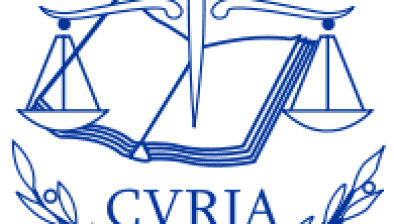Supreme Court: Real IRA suspect surrendered to Lithuania despite claims that no decision was made to charge him

The Supreme Court has dismissed an appeal brought by a man seeking to avoid surrender to Lithuania on foot of a European arrest warrant. It was alleged that the appellant acquired and smuggled firearms from Lithuania into Ireland for the Real Irish Republican Army.

About this case:
- Citation:[2022] IESC 21
- Judgment:
- Court:Supreme Court
- Judge:Ms Justice Marie Baker
The appellant argued that his surrender was precluded under section 21A of the European Arrest Warrant Act 2003 because a decision had not been reached by the Lithuanian authorities to charge and try him for the offences. The court rejected this submission, holding that the evidence established that the Lithuanian authorities intended to charge and try the appellant. The only reason that the appellant was not already charged was because he was required to be interviewed under Lithuanian law prior to indictment.
Background
The appellant was alleged to be a member of the Real Irish Republican Army, who had acquired and smuggled firearms and explosives from Lithuania into Ireland between 2006 and 2007. In August 2013, an EAW issued in Lithuania in respect of the offences. The appellant was arrested in December 2016 and an order for surrender was eventually made by the High Court in July 2020.
One of the issues in the High Court related to the interpretation of section 21A of the 2003 Act. Section 21A provided that the High Court must refuse to surrender a person if it was satisfied that a decision had not been made to charge the person with and try him for that offence in the issuing state.
The appellant submitted that the Lithuanian authorities were seeking his surrender despite not having decided to charge and try him for the offences. In response, it was explained that, prior to the presentation of an indictment, a pre-trial investigation must take place in Lithuania. This pre-trial investigation provided for the participation of the suspect and an indictment could not be presented without such participation.
The Lithuanian authorities confirmed that it had sufficient evidence to suspect that the appellant had committed criminal offences and that there was a “high probability” that a bill of indictment would be drawn up. The High Court determines that the EAW had been issued with reviewed putting the appellant on trial.
The Court of Appeal agreed with this analysis, concluding that it was possible to interpret the word “decision” in section 21A as being coterminous with “intention” when it came to charging and trying the appellant.
The decision to surrender was appealed to the Supreme Court. The main submission of the appellant was that there existed a tension between two Supreme Court judgments as to the meaning and application of section 21A. It was argued that the Supreme Court had previously strayed outside the literal meaning of the word “decision” in Minister for Justice, Equality and Law Reform v. Olsson [2011] IESC 1 and that this interpretation had been overruled or modified by the later case of Minister for Justice, Equality and Law Reform v. Bailey [2012] IESC 16.
Supreme Court
Delivering judgment in the case, Ms Justice Marie Baker began by considering the decision in Olsson. In that case, the respondent sought to avoid surrender to Sweden on the basis that the pre-investigation stage had not concluded and there was no decision to charge and try him.
The Supreme Court held that the purpose of the 2003 Act was to provide for the reciprocal execution of warrants in countries with differing criminal systems. As such, the Act would be frustrated if surrender only occurred where broadly identical procedures existed between states. Ms Justice Baker summarised the decision by stating that a court must “look at the substance and not the form of the requirements of the relevant legal systems.”
The court also noted that section 21A(2) of the 2003 Act provided that there was a presumption that a decision had been made to charge and try a respondent under every valid EAW.
Moving to Bailey, the court held that surrender was refused in that case because a decision had been made to charge the respondent but not to prosecute him for the offences. As such, Olsson had been distinguished because the respondent had been sought for the purposes of investigation. The evidence established that a decision to try the respondent could only occur after the examination phase of the investigation. Accordingly, the requirements of section 21A had not been met.
Further, Ms Justice Baker considered whether a final and conclusive decision had to be taken for surrender to occur. It was held that an investigation may continue after a decision had been made to charge and try a respondent, as there may be circumstances in which further investigation necessitates abandoning a prosecution, the court said.
Considering the proper interpretation of the 2003 Act and the EAW Framework Directive, the court held that an interpretation was required which had regard to the stated objectives of the Act as a whole “because the principle of sincere cooperation could not be met by a narrow interpretation which failed to respect differences in legal systems in other Member States”.
As such, a literal interpretation of the 2003 Act would not always yield the correct result, the court held. The court observed that the difficulty in the case arose from the intersection of different legal systems and not from any ambiguity in the Act. It was in this context that Olsson determined that “decision” was synonymous with “intention”.
The court held that “a decision to try person is not coterminous with the fact that the trial has commenced, but is rather a state of facts or state of affairs which means that sufficient evidence exists or is thought to exist to put a person to trial”. The latter point was the determining factor in Bailey.
In applying the law to the facts of the case, the court held that the charging and trying of the appellant was merely a procedural step in the process and that this procedural step did not amount to a decision to charge and try the appellant. The Lithuanian authorities claimed to have sufficient evidence to charge and try the appellant even without his participation and that there was a high probability that he would be sent forward to trial.
Ms Justice Baker held that, on the evidence, the Lithuanian authorities did not need further evidence to charge the appellant. Once the appellant was allowed to comment on the evidence, he would be charged and tried, the court held. The statement that there was a “high probability” of indictment was not to express an ongoing contingency, but reflected the fact that certain events could take place which might lead to the abandonment of trial, such as the loss of evidence.
Conclusion
The court held that the primary test was whether there was an intention to charge and try the appellant. The evidence showed that the Lithuanian authorities had made a decision and formed an intention to charge and try the appellant. Accordingly, the appeal was dismissed and the appellant surrendered to Lithuania.
The Minister for Justice and Equality v. Liam Campbell [2022] IESC 21











